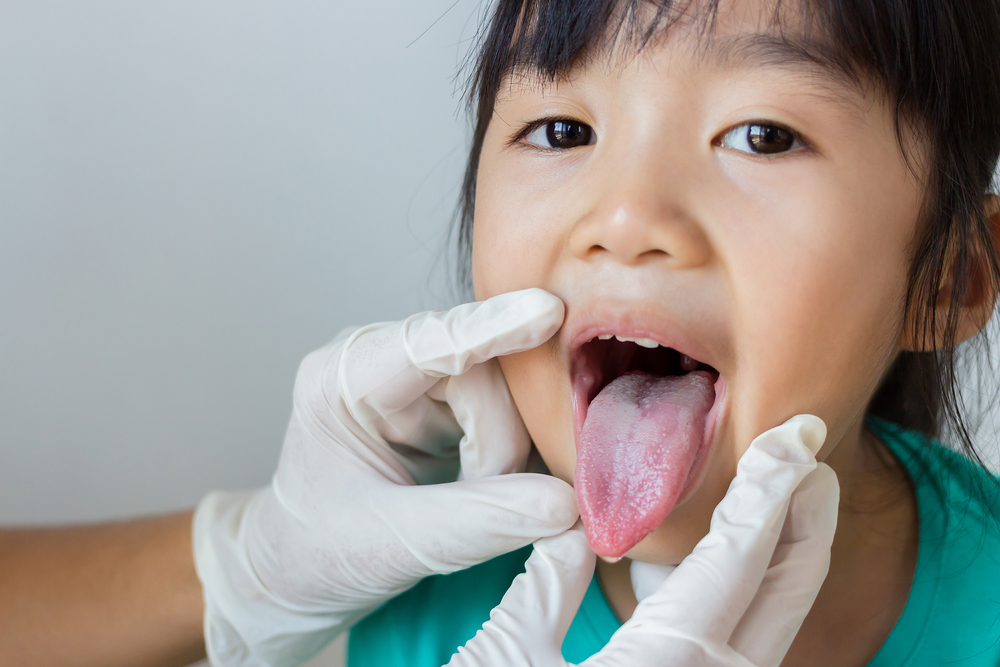Contents:
- Medical Video: Taking Care of Your Children : How to Treat Oral Thrush in Newborns
- What is oral thrush?
- So, what does oral thrush look like?
- Who is at risk of developing a fungal infection in the mouth?
- How do you treat oral thrush?
Medical Video: Taking Care of Your Children : How to Treat Oral Thrush in Newborns
Mushrooms can grow anywhere, including in the oral cavity. This fungal infection in the mouth is indeed not a life threatening disease, but it certainly can make you uncomfortable. The condition of fungal infections in the mouth is usually called oral thrush. Then, what are the symptoms that must be considered from this disorder?
What is oral thrush?
Oral thrush is a condition when the fungus infects the inside of the mouth and tongue. Oral trush is also called oral candidiasis, or candidiasis ororfaring.
The fungus that causes infection in the oral cavity is the fungus Candida albicans. Actually, this type of fungus does grow naturally in the mouth, but in small amounts so it does not cause any interference.
But when the fungus has begun to grow out of control, the infection will appear in the mouth. The oral trush condition most often affects infants or toddlers. But it does not rule out the possibility that adults can also experience this case.
C.albicans fungus will cause the appearance of white bumps often on the cheeks inside and on the tongue.
So, what does oral thrush look like?

At first, fungal infections in the mouth do not cause symptoms or give any signs. But over time and more and more fungi accumulate, then some symptoms and signs begin to appear that you can see and feel:
- White patches or white spots that spread. These spots look a little thicker or like bumps.
- Felt hurt
- Difficult to swallow
- Discomfort in the mouth
Oral thrush in adults is generally thicker, white or creamy. The bulge can bleed if scratched or rubbed something. The parts of these spots can stick to the tonsils, tongue, uvula, inner cheeks, gums, palate.
Fungal infections in the baby's mouth will usually make your child fussy, irritable, and refuse to suckle. Mothers should pay attention to this condition in the baby, because this fungal infection will spread when breastfeeding.
If it spreads to the mother's breast, symptoms will arise such as:
- Itching, sensitivity, pain in the nipple area
- The skin is peeling or shiny around the nipple
- Severe pain during breastfeeding
- The pain is sharp like damaging the breast
Who is at risk of developing a fungal infection in the mouth?
- People who wear dentures. Especially if it is not kept clean and not removed before going to bed
- Antibiotic users. People who use antibiotics for a long time have a high risk of developing oral thrush. Because antibiotics can destroy bacteria that prevent the emergence of Candida fungi
- Use of excessive mouthwash. Mouthwash is usually antibacterial. Using it too often also disrupts the number of good bacteria that keep Candida present.
- A weakened immune system
- Lack of nutrients, including iron deficiency, vitamin B12 or folic acid
- Heavy smoker
- In infants also susceptible to the risk of oral thrush, especially premature babies because the body's immune system is not strong
How do you treat oral thrush?
Doctors usually treat fungal infections in the mouth with drugs such as nystatin and miconazole in the form of gels or drops. You can also be given lozenges or solutions to wash the oral cavity that can be swallowed.
Drinking drugs or drugs given by injection are only given to patients with certain cases. For example, has a very weak immune system.
If such treatment is unsuccessful, the final choice is usually given amphotericin B. This drug is only given as a last resort because it can have negative side effects.
In addition to drugs, you should also do home care to prevent it from getting worse. In a way:
- Rinse mouth with salt water
- Use a soft toothbrush to avoid scratches
- Use a new toothbrush every day until the infection disappears
- Eat real yogurt without sugar to restore the amount of healthy bacteria in the oral cavity
Meanwhile, you can also prevent oral fungal infections in your child, by:
- Maintain cleanliness and sterilize baby toys
- Sterilize milk bottles and baby food supplies
- Always maintain a baby's oral hygiene by regularly cleaning the remnants of breast milk on the baby's tongue with sterile gauze soaked in warm water.















